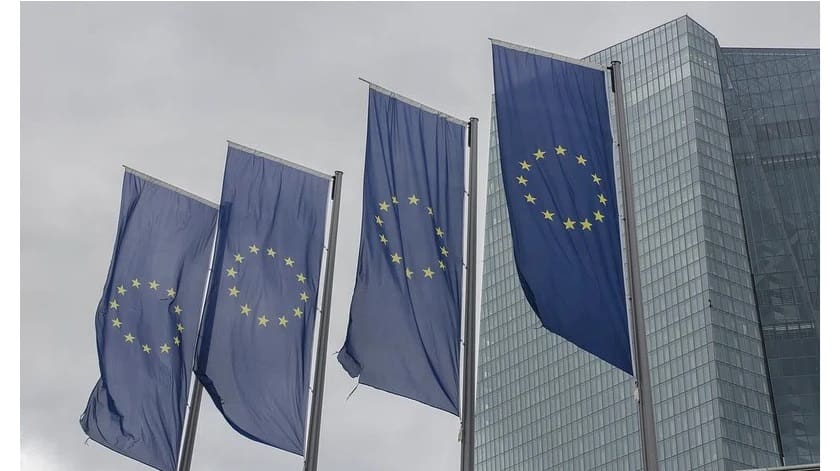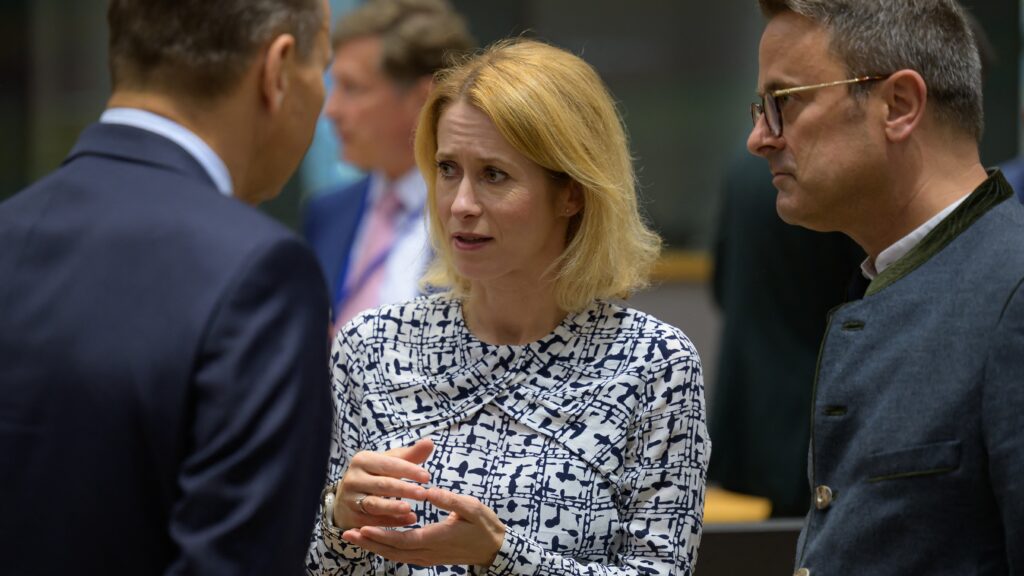2024 looms as a watershed year for the European Union, much like 1957 did when the Treaty of Rome kindled the flames of Europe’s ambitious unification project. This ‘Great Adventure,’ as French President Jacques Chirac described it, now teeters on a precipice of uncertainty. Pivotal moments await, including the European Parliament elections in June and the appointment of a new European Commission. These institutions are poised to confront a gauntlet of uncomfortable challenges.
The primary one of these is that the Union’s aspirations of becoming a significant geopolitical force are increasingly viewed as a pipe dream. Its missteps in foreign policy are compounded by a worsening economic malaise, characterized by Europe falling behind the United States and China in business, industry, and technological innovation.
Much of this damage is self-inflicted.
Broadly speaking, European strategy for the past two decades has essentially been a double-down bet that the U.S.-led liberal international order would continue for the foreseeable future. With the United States providing international security, Russia supplying cheap energy, and China (and later India) emerging as a massive market demanding specialized European goods and products, all within the context of a neoliberal global economy, European countries could enjoy the best of all worlds. Brussels, Berlin, Paris, and others would be spared from having to pour resources into defence budgets.
Instead, European states could focus on sustaining their welfare states, refining and advancing their manufacturing industries, and helping develop states admitted to the Union since the ‘Big Bang’ of 2004.
Europe, in short, believed it held a good hand. It turns out that all it had was a pair of 8s, but was utterly sure that the river card would grant it a winning hand.
The time came when Europe should have folded, but it didn’t.
Events over the past 15 or so years have highlighted the error of this strategy. The 2008 Financial Crisis revealed the risks of a globalized neoliberal market economy, while also highlighting the difference between the fiscal policies of European states themselves. This led to the crippling European debt crisis of the early to mid-aughts, which took years to resolve and highlighted divisions that existed within the Union. Meanwhile, beyond the continent, China’s rise and industrial development went from being a source of wealth and benefit to a significant cause of concern. In response came U.S. efforts, but also European attempts, to rebalance trade and halt the off-shoring of jobs and industrial capacity, which have led to the return of protectionism and industrial policy.
The War in Ukraine and the energy sanctions imposed on Russia in response were the proverbial straw that broke the camel’s back; the continent is now de-industrializing due to high energy prices. At the same time, in response to the war, European leaders have pledged to up their military spending due to both the nominal reinvigorated threat from Moscow and Washington’s continual signalling that it intends to refocus its attention to the Indo-Pacific.
Europe is thus stuck in a rather Kafkaesque situation: deprived of Russian energy supplies and faced with the prospect of a reduction in American security, European leaders are being called upon to somehow increase defence spending on an already limited budget (in the context of a shallow recession) and pursue a green energy transition despite reduced fossil fuel supplies and 'de-risk' its trade relationship with China, and sustain the welfare state as well.
This is a mammoth challenge to say the least, especially given that the welfare state model itself is already under significant strain due to weakening EU macroeconomic conditions, inflationary pressures, poor demographics, and the migrant crisis—the latter of which brings in foreign populations that draw upon public benefits but have a poor record of assimilating. On top of all this, existing EU members are being asked to consider further enlarging the Union by adding in beleaguered and nearly bankrupt Ukraine, plus a handful of relatively poor Balkan states.
Where would the $411 billion to $1 trillion to rebuild war-torn Ukraine come from? No one is quite sure and it is apparently impolite to ask.
It is no surprise then that not only is EU decision-making under fire but that the legitimacy of the entire Union is being questioned. Nationalist and populist political parties, primarily on the political right but also increasingly on the left, are gradually becoming stronger. Attempts to impose political cordon sanitaires to prevent these parties from entering government, or even banning them as German officials are proposing to do with Alternative for Deutschland, are extremely likely to backfire if the issues that are upsetting voters fail to be addressed.
A recent major poll reveals that a significant portion of Europeans, along with a majority in China and Saudi Arabia, believe the EU might disintegrate within two decades.
Given these numerous negative trends, it is clear that 2024 stands as a do-or-die moment for European leaders and policymakers to save and turn around the European Union. Achieving such will require making painful decisions. In the short term, the most immediate, visible, and pressing among these is addressing the migrant crisis, including the reality that many migrants, refugees, and illegal immigrants are taking advantage of Europe’s over-generous welfare state. Recent studies from the Netherlands, Denmark, Germany, and Austria confirm this.
As 2024 unfolds, the European Union stands at a pivotal juncture, faced with profound challenges and the urgent need for reform. Time is of the essence.
The European public’s patience is seemingly running out, and global trends are not in the continent’s favour.
The upcoming European Parliament elections and the new European Commission must address all these critical issues, from economic stagnation and geopolitical shifts to the migrant crisis and the strained welfare state. This year is crucial for the EU, not merely as another chapter in its history, but as a decisive moment for introspection and bold action. If such isn’t taken, then Europe risks being reduced to an object, rather than being a subject, of international relations.
Related articles:








